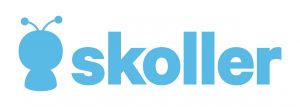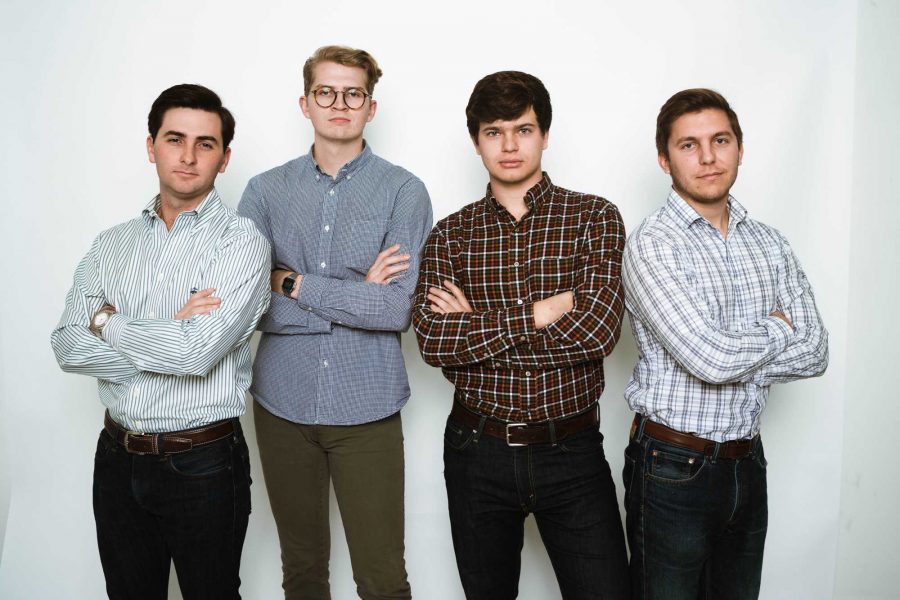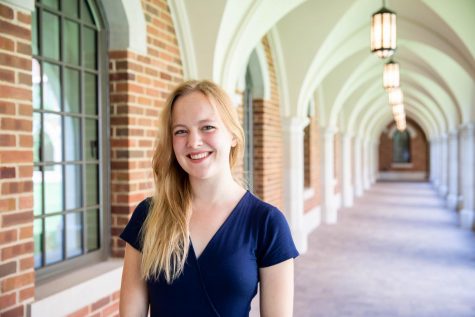Story updated Feb. 12, 2018 at 12:03 p.m.
The office looks exactly as one would expect a young tech startup to look: a staff dressed in everything from business casual to hoodies and jeans, an open floor plan with employees sharing tables and other workspaces, boxes of promotional swag stacked high and lively, friendly banter among the team. Despite it being well past 5 p.m. at their downtown Nashville office, the team behind Skoller, a new classroom crowdsourcing app, is still hard at work, discussing how to grow their user base and planning upcoming promotional events.
Skoller, formerly known as ClassNav, re-launched last fall after months of development and improvements. The app is a way for students to manage all of their class grades and assignments in one place. Students upload their class syllabi and the team at Skoller pulls out the important dates and assignments to populate the user’s task list and calendar with upcoming due dates. Users can also input their grades and track their grades, and there is now an option to chat with other users in one’s class.

The app is the brainchild of Belmont graduates Carson Ward, CEO, Logan Matthews, COO, and Jonathan Rankin, Creative Director. The three met as economics students during their undergraduate years, and have spent the last two and a half years building Skoller together, along with Vanderbilt junior Bruce Brookshire, CTO, and a team of programmers, syllabi extractors, campus ambassadors and interns.
“We started it because I realized that students, or I, had trouble personally keeping up with my grades,” Ward said. “I had a grade calculator built out for every single class so I could keep track of my performance in Excel. I had a bunch of friends that would come by and be like ‘hey would you build that calculator for me I’m having trouble keeping up as well’ and I realized that we could build this calculator once and distribute it to 30 students in the class.”
Brookshire joined the team less than a year after the idea’s inception. Much like Ward, he was struggling to keep up with the responsibilities of classes and had begun trying to code his own app to track his performance when a friend told him about the team at Skoller. Intrigued, he met with them and joined as a programmer over the summer, and later came on full time as the company’s CTO.
The “crowdsourcing” element of the app comes from the connection between users in the same class. In addition to being connected in chat groups with other users in the same class, changes made to syllabus dates by one student can be seen by all students in that class. For example, if a test date changes and one user updates the assignment on Skoller, every other user in the class will get that notification.
It’s normal for us to be doing one thing one day and the opposite thing the next day
“It’s really on the students and the power of the technology to crowdsource changes,” Ward said. “If a test due date changes and you go into the app and change that, we’ve grouped you with your classmates, so they get a notification with the option to copy or dismiss that change. So we crowdsource changes, and it will get easier and more reliable as more people join.”
So far, the app is available at 14 universities and is continuing to grow. The growth has been somewhat fast, though Ward said this is not uncommon in software. However, Skoller has had some growing pains. Before hiring a team of extractors to go through the syllabi that students upload and extract the relevant information, the executive team did it manually themselves, often working 16 hour days to keep up with the number of syllabi that users were uploading. There were also times when the code that kept the app running was unable to handle the quantity of information that was being asked of it.
“We kept users on the app throughout the entire semester, and they continued to use it more and more as the semester went on, and so the product in our eyes was deemed viable for the market,” Ward said. “But we had trouble handling the amount of syllabi that we were receiving. Every single time we’d go visit a group, we’d get hundreds of syllabi, and we were working on that on the backend, and we didn’t have the horsepower to keep up.”
Following that early beta testing, Skoller took a semester off and completely redid the backend of the code, rebuilt the app and remade the website. Overall, the team said what has kept them able to grow over the past few years of development is their ability to be agile and their comfort with change.
“Our business model is completely different than when we started four years ago,” Rankin said. “It’s normal for us to be doing one thing one day and the opposite thing the next day.”
Since re-launching, Skoller is already seeing current users spend triple and quadruple the amount of time on the app. They’ve received positive feedback from users and funders alike. Now, their aim is to increase the number of users, and through their campus ambassadors and upcoming roadshows to colleges, they are confident that they will continue their path of growth.
“There’s so many times we’ve come up against something and we grow the business through it, but we also have grown ourselves through it,” Brookshire said.



